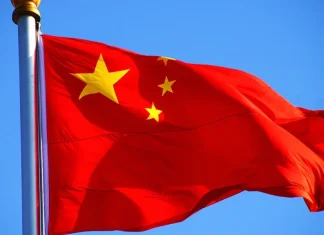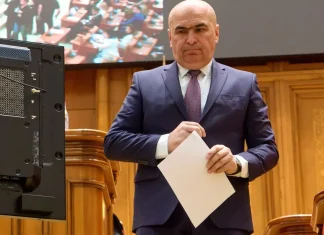(Transcript of the spoken editorial from the show “Ce-i în Gușă, și-n căpușă!” on GOLD FM)
Author: Cozmin Gușă
It’s far too early, dear Gold listeners, to discern the real and full consequences of geopolitical events as complex as those that just took place in China, but I promise to address that in the coming weeks. Today I’ll provide only a brief balance sheet that can nonetheless sketch a relative framework for geopolitical interactions in the future Post-American World Order. And since Vladimir Putin acted as the operational manager shaping the resulting geopolitical framework, I’ll start with Russia.
Russia. At the events in China, Russia succeeded in evoking a consolidation of economic ties with the most populour global duo, China and India, while Vladimir Putin was haloed by the major achievement of restoring friendly strategic relations between these two neighboring states, China and India. India’s prime minister, Modi, emphasized this in particular; that was probably his role. In addition, Putin also angled from China an open benevolence from Pakistan’s leader, a Pakistan considered a traditional U.S. ally, which now declared through its leader that it eagerly awaits a visit to the Kremlin. In my view, that makes it foreseeable that the long-standing, complicated India–Pakistan file, two nuclear states in decades-long conflict, will begin to be addressed without American involvement. Over the four days, Putin was not only presented as the most distinguished guest; he also set the tone for forging new alliances and decisions with a huge impact at the level of the SCO, the Shanghai Cooperation Organization—clearly dedicated to implementing the Post-American World Order. And regarding America, Putin wrapped up his China tour with a cheerful, upbeat press conference, full of laughter, where he especially patted Donald Trump on the head, reassuring him, in a fatherly way, that he needn’t be suspicious or upset, since all the political leaders present in China agreed with what the two of them had decided in Alaska.
China. Because in life, and especially in geopolitics, money and force potential dictate, China and Xi Jinping have, in recent days, crowned themselves the de facto leaders of the world’s transformation process, and the messages issued by the Chinese leader to the rest of the planet were extremely eloquent in this sense. The SCO and the grand military parade gave Xi the perfect stage, where he managed to suggest, beyond doubt, power, grandeur, precision, and, crucially, restraint: an excellent sauce, ultra-necessary for such a turbulent period. Reintroducing North Korea and Kim Jong-un into the international diplomatic circuit is highly telling in terms of how the Post-American World Order should be understood (I said I’d repeat this so you remember the phrase: Post-American World Order). The alignment of Chinese and Indian interests is, however, the geopolitical action with the greatest practical impact—the move that further strengthened the effectiveness of the Russo-Chinese geopolitical pincer I keep talking about. In this way, India also gains the geopolitical role it deserves, and you’ll see the consequences in how India and Prime Minister Modi act on the world stage in the period ahead.
USA. Although it seems like a “dead hand” for now, and Trump a droopy, grouchy leader, the United States will, in turn, reap major benefits in the coming period as a result of events in China. The messages sent to Americans from Beijing and Tianjin were constructive, not bellicose at all, and behind them we can discern not only that America has been assured free rein across the entire American continent, including the countries of South America, but that the U.S. will be welcome again in Africa, from where it was nearly driven out, alongside Russia, China, and India, who will make room for it. The U.S. will also be present in the Baltic area, with Greenland included. In its precarious state of massive economic and societal crisis, America needed such a geopolitical outlet like air, yet one obtained, note well, with the consent of the emerging powers, China and Russia. Despite their pride as citizens of a declining empire, Americans will soon thank Trump for this, once it becomes evident what’s happening and how America’s escape from the morass of recent decades is being managed.
EU. The European Union is the default loser of the current phase of geopolitical change. Absent from China and without even normal messaging toward the Chinese events, the EU appears as a prisoner of Western High Finance—“Rothschildian,” as I call it—Finance that is quite disoriented, outdated, and gerontocratic to grasp that its sunset is being orchestratedthrough a global collaboration in which even Trump’s America is a participant.
Middle East. The region was formally admonished, especially in the SCO joint statement section that put Israel in the dock for its actions in Gaza and particularly in Iran; the warning also sounded harsh for the Arab states that passively watched the humanitarian and military disaster in Gaza and Iran. At this level—of the Middle East and the Arab countries—you will see complementary actions by Russia and China that will bring the wealthy Arab states into the slipstream of the coming great geopolitical shift and, clearly, Israel will be efficiently and sternly isolated if it does not quickly return to normality.
That’s enough for today’s balance sheet—I have much more to present and explain, but I promised to do that later.
I mentioned a supplement about Viktor Orbán, the big absentee from China, even though in recent years he has been a strong promoter of ties with China and even a most-trusted messenger within the Putin–Xi Jinping–Trump triangle. I’ve seen frequent questions about Orbán’s non-attendance in China, along with some half-excuses for his absence, citing the participation of Foreign Minister Szijjártó. Those don’t hold up. What you need to know is that Orbán is in an extremely difficult situation, and the highly successful ballet he was allowed to dance until now is no longer possible going forward. The hard truth is that Hungary is dependent on Western High Finance, the Rothschild sphere, which practically keeps the neighboring state alive. The cognoscenti know about this Rothschild origin of Hungary’s big capitalists, the ones who provide Orbán’s safety net and power. It was at that level of Hungary’s big capitalists that the decision was made for Orbán not to attend in China, and he was obliged to comply. Of course he will be granted understanding by both Xi and Putin, but it’s clear that this unmasking of Orbán will bring negative consequences for him and for Hungary, which you will notice soon. In Orbán’s case, the old saying applies: “It runs until it doesn’t,” or in Transylvanian dialect, “Mere până nu mai mere!” (“It goes until it no longer goes!”).











